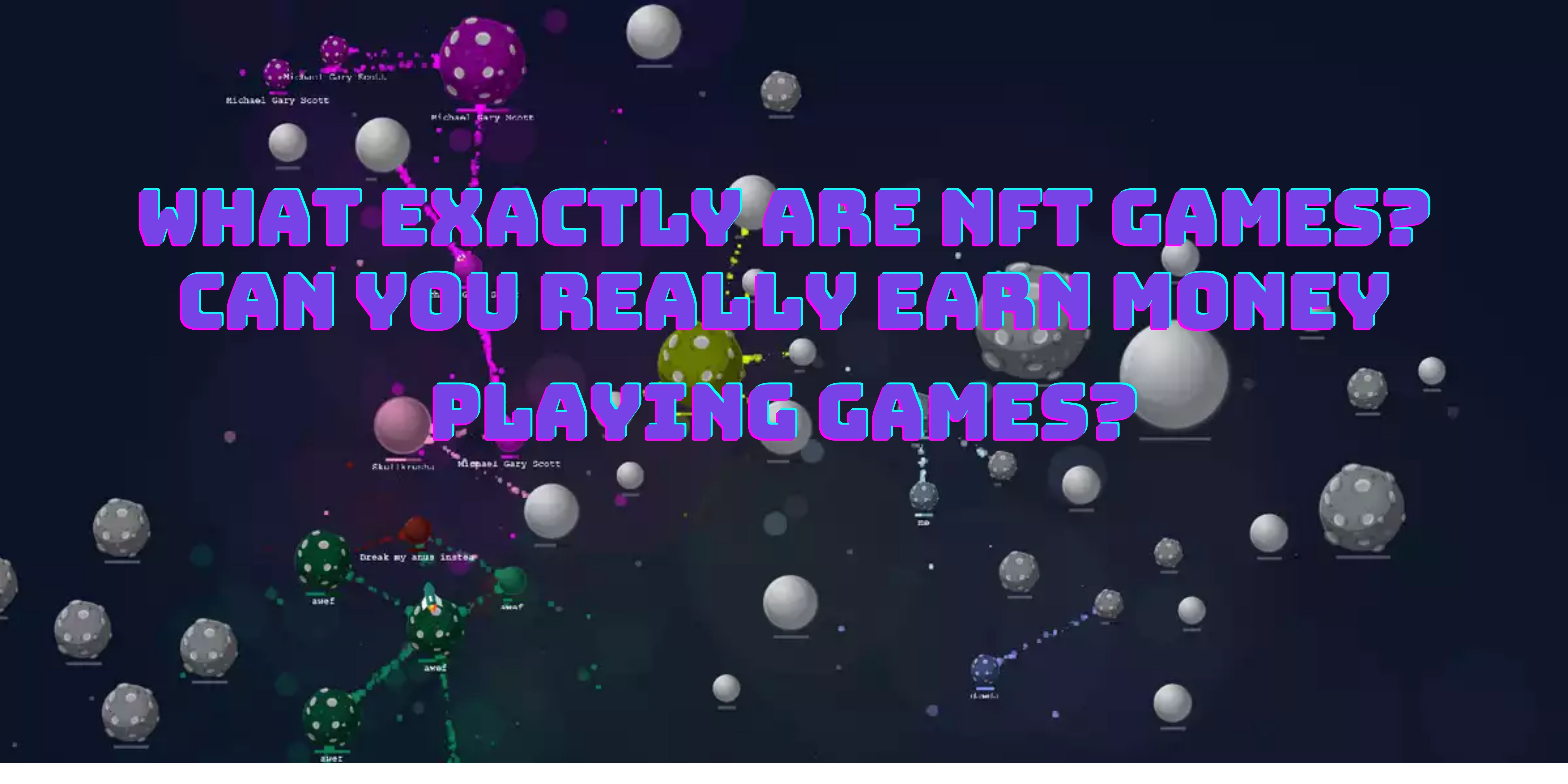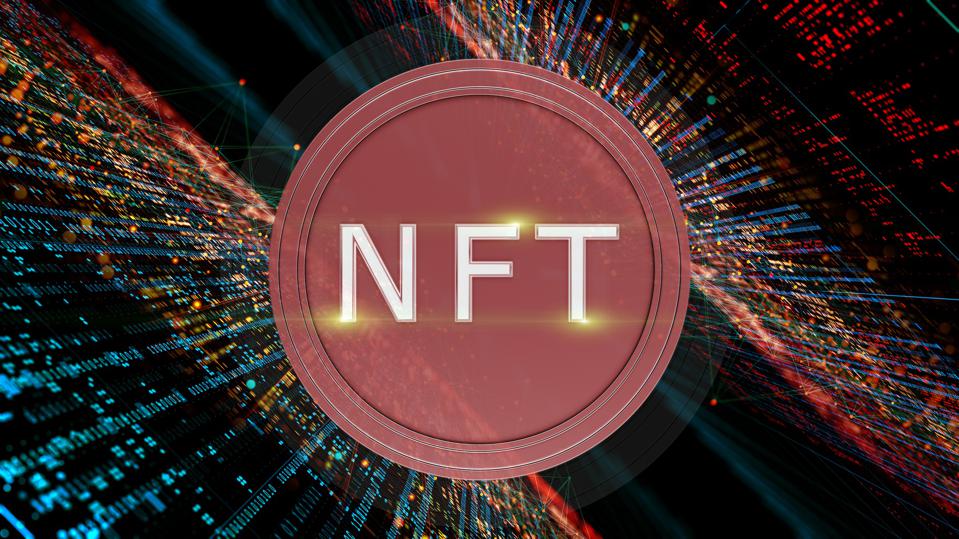What Exactly Are NFT Games? Can You Really Earn Money Playing Games?
NFTs have been a major topic of discussion in recent months, and rightfully so. If you're familiar with NFTs, you've probably seen people earn hundreds of thousands of dollars in a matter of days. If you're new to NFTs, this article will explain what NFT games are and how to profit from them.
Author:Al Dente & Tony SopranoReviewer:Maxwell CanvasNov 06, 202262 Shares1.6K Views

NFTs have been a major topic of discussion in recent months, and rightfully so. If you're familiar with NFTs, you've probably seen people earn hundreds of thousands of dollars in a matter of days. If you're new to NFTs, this article will explain what NFT gamesare and how to profit from them.
What NFT Means?
A non-fungible token (NFT) is a piece of data stored on a decentralized digital ledger known as a blockchain that certifies that a digital asset is unique and thus not interchangeable. NFTs can be used to represent a variety of different types of digital files, including photos, videos, audio, and other types of digital files.
For non-technical individuals, this essentially means that a digital asset is owned by you alone and is certified on the blockchain; no one else owns it, so you are the only one who can buy and sell it.
How Does NFT Games Work?
NFT games are not the same as simply storing cryptocurrency collectibles in your wallet. NFTs are incorporated into the rules, mechanisms, and player interactions of an NFT game. For instance, a game may use an NFT to represent your unique character or avatar. Digital items discovered during gameplay may also be NFTs. You can then exchange or trade your NFTs for profit with other players. Additionally, a newer, play-to-earn model enables you to earn money from NFT games.
So how do you technically integrate NFTs into a game environment? To exchange, create, and implement NFTs in a game, developers create smart contracts that define the NFTs' rules. On a blockchain, smart contracts are self-executing pieces of code.
Play-To-Earn NFT Games
Play-to-earn NFT games enable users to earn money while they play. Typically, players are rewarded with tokens and, on occasion, NFTs, earning more as they play longer. Tokens earned are frequently required during the game's crafting process.
The token method is typically more stable than the NFT drop method, as tokens can be earned steadily through gameplay, whereas NFT drops are more random. Play-to-earn has been particularly popular among low-income users as a supplement to fixed income or social security.
In-Game NFTs
In-game NFTs provide another revenue stream for players of NFT games. Rather than earning a fungible ERC-20 token such as SLP in Axie Infinity or SKILLS in CryptoBlades, you earn collectible NFTs. This gameplay mechanism is the traditional way for NFT games to generate revenue. The value of items will vary according to their cosmetics, rarity, and utility in the game.
Can You Make Money Playing NFT Games?
The amount of money you can earn playing an NFT game will depend on the specific game's mechanics and market demand. The money you make will come from other users who value the NFTs or cryptocurrencies earned in the game. You will need to cash out by selling your goods on a market, exchange, or auction house. With NFT games, value is derived either from the NFT or token's collectability or in-game utility. These two factors also lead to speculation.
Is It Possible To Lose Money Playing NFT Games?
It is possible to lose money while participating in NFT games. The precise amount varies according to the type of game being played, its mechanics, and the value of the NFTs being handled. Losing money does not always indicate that you have been duped. Due to the speculative nature of NFTs and the value placed on them by investors, your losses are also subject to market forces. Spend only what you can afford to lose, as with any cryptocurrency investment.
Can I Lose My NFTs?
Given the high value of some NFTs, it is a common fear that they will be lost while playing a game or interacting with the blockchain. Whether you purchased your NFTs or earned them in-game, you must safeguard them. In short, if you're not careful, you risk losing your NFTs. However, if you follow the best practices, your chances of losing them are slim.
Conclusion
NFT gaming takes digital collectibles and develops rules that govern how players interact with one another's NFTs. While some individuals desire NFTs for their collectability, others desire them for their utility. While many NFT games function similarly to trading card games, not everyone who collects cards intends to play. Game-fi has now established new NFT gaming economies, transforming the way people earn money with NFTs. To earn money, it's no longer just about chance and collection; it's also about playing.

Al Dente & Tony Soprano
Author
Al is a kindhearted Italian cook who loves making pasta. He speaks in an exaggerated Italian accent.
However, when provoked, Al's personality transforms into Tony, a crude and intimidating mob boss. Tony speaks in a New York accent and demands respect through threats and violence.
The switch between Al and Tony's personalities is jarring. Al wants to stay in control but one wrong word brings Tony roaring to the surface. People find Al endearing but find Tony's presence disturbing. Al and Tony represent the duality of human nature, with both kindness and cruelty within a single person.

Maxwell Canvas
Reviewer
Maxwell Canvas, a charismatic and fearless crypto evangelist, defies conventions and blazes a trail in the realm of digital currencies. With his unique physique serving as a symbol of resilience, he challenges societal norms and proves that true expertise transcends appearances. Against a backdrop of a blurred and ever-shifting market, Maxwell's work becomes a masterpiece, painting a vivid picture of knowledge and inspiration.
With unwavering passion, Maxwell empowers others to embrace the transformative potential of blockchain technology. His captivating presence and unyielding dedication captivate audiences, turning skepticism into curiosity and igniting a spark of interest in the world of cryptocurrencies. Maxwell Canvas stands as a visionary force, leaving an indelible mark on the crypto landscape, inspiring others to explore decentralized possibilities and embrace a future of innovation and financial empowerment.
Latest Articles
Popular Articles
